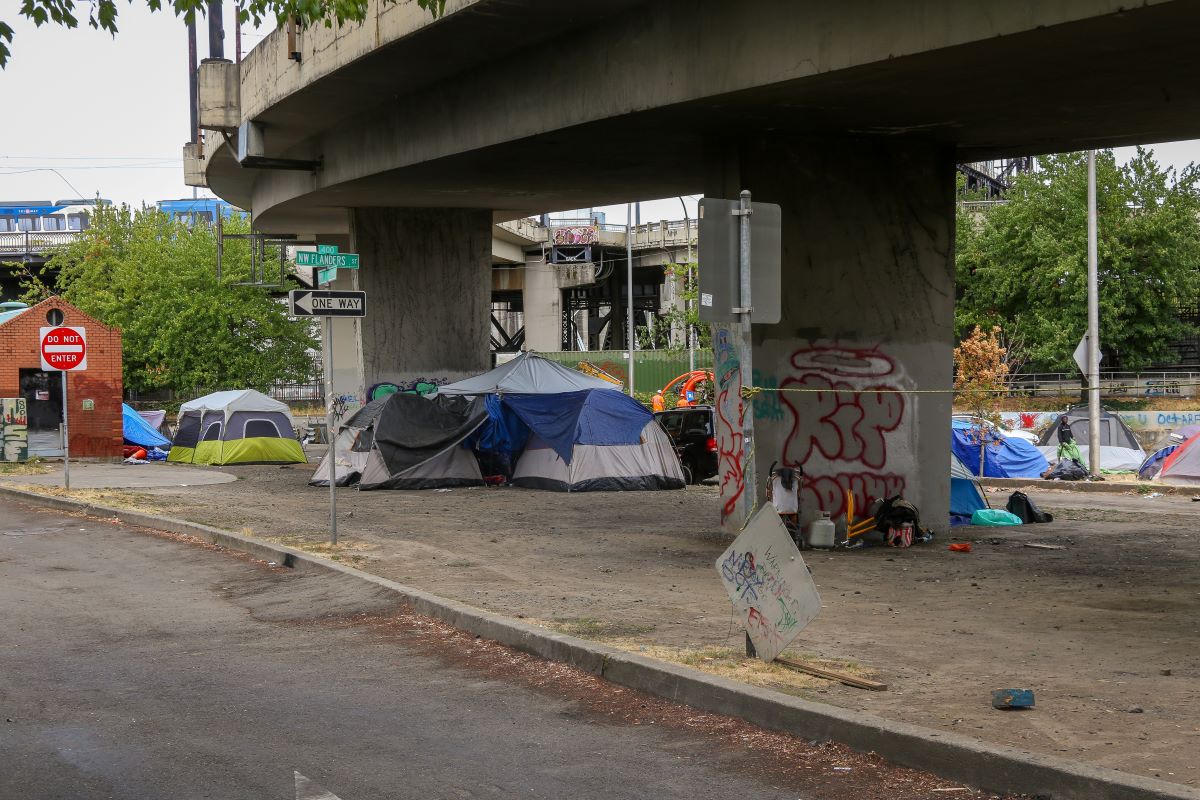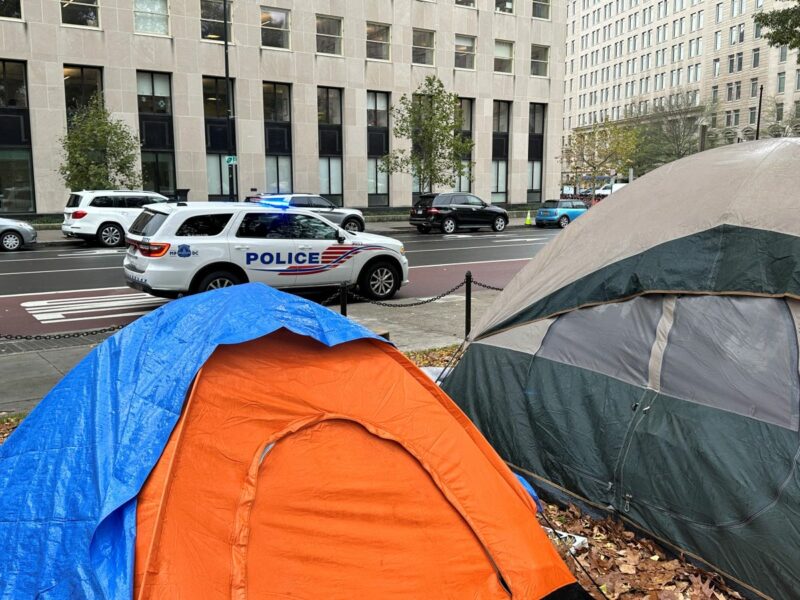From Banning Daytime Camping to Fines: Inside Portland’s Homelessness Measures
With Portland’s recent restrictive daytime camping ban held up by a lawsuit, Mayor Ted Wheeler has introduced a new idea to punish people for being poor. A new proposed ordinance would allow for the city to slap unhoused people with fines or jail time if there is space in a shelter and they refuse to accept it.
This will not go well, and there’s little reason to suggest it other than sheer vindictiveness. Wrapped up in all this is a huge amount of paternalism, the idea that “beggars can’t be choosers,” and the prioritization of housed people’s comfort over everything else.
What Will This Measure Do?
The crackdown would see police doling out fines of up to $100 or jail time of up to 7 days to homeless people camping in public. To cover their bases as Grants Pass vs. Johnson moves through the Supreme Court, the wording of the proposal insists that punishments would only be given when there is alternate shelter available to a person.
The availability of alternate shelters in Portland changes daily or even hourly, and it has already proved difficult to track accurately. It would apparently fall to police personnel to keep tabs on the availability of shelter beds while deciding when to enforce this law.
This may all be on the up and up from a legal perspective, but anyone living in reality can see how it’s likely to be abused. Outside of a few tireless advocacy groups, no one seems to mind looking the other way when the letter of the law is violated to punish unhoused people.
And we’ve seen how violent police interactions with homeless people can get, even when there is no legal violation. We need less police interaction with homeless people who are just trying to live their lives in peace and catch a few hours of sleep, not more.
Punitive Measures Don’t Solve Problems
As we know, there are many reasons why an unhoused person may decline to stay in a shelter, even if beds are available. The vast majority of those reasons stem from shelters being unable or unwilling to support that person’s actual needs.
Whether it’s separating couples or families, disallowing pets, or imposing strict curfews that conflict with a job, some people would rather maintain their personal freedom than exchange it for a bed of varying quality.
That’s to say nothing of the abuses that can and do happen within shelters. Some people have weighed their options and decided that they’d be safer overall taking their chances sleeping rough than in a shelter where predatory staff or guests are allowed to operate unchecked.
The scales are weighted against shelters. However, instead of improving shelters and aligning their services more with the needs of people who have been left out of them, Mayor Wheeler has chosen to tip the scales by making the unsheltered side worse.
Adding the possibility of jail time or fines to people who choose to avoid shelters doesn’t even attempt to solve the problems at the root of this issue. It’s just another way to punish poor people, further criminalize homelessness, and center the comfort of housed Portlanders. In other words, a political stunt.
Can Beggars Be Choosers?
The adage that ‘beggars can’t be choosers’ is an insidious phrase that gets trotted out every time poor people dare to complain about the substandard conditions they’ve been forced to live in.
I don’t think many people stop to consider what they’re really saying when they repeat this phrase. What is the minimum income requirement for autonomy over your own life? What is the lowest tax bracket that’s still allowed to pursue happiness? What is the monthly subscription fee for dignity?
Most people won’t know the answer or even see the inherent question until they cross that invisible line between ‘have’ and ‘have not.’
To the people supporting the idea of punishing unhoused people with fines and jail time for not behaving how they see fit, paternalism is second nature. They may know nothing about what it’s like to sleep in a shelter, but that doesn’t stop them from feeling certain that it must be what’s best for every single homeless person.
They’ve never considered that unhoused people who choose to avoid shelters may have a very good reason for doing so and that they themselves might even make the same choice if they were in the same situation.
The dominant narrative is there is no logical reason to avoid shelters. Everyone doing so must be acting against their own interests and should no longer be allowed to make decisions for themselves. Therefore, the state should get to decide what happens to them, you know, for their own good. It’s absolutely dystopian.
The Comfort of Housed People Trumps All
Some more naive voters fall for the concern-trolling party line that “it’s not compassion to leave people on the street.” Others can hear the unspoken end to that sentence- “where I can see them.”
This proposal has obviously not been made in the interest of any homeless person’s well-being. People are interested in their own comfort and ability to continue to ignore the problem of homelessness by not being forced to confront it each day as they walk down the street.
The goal of this measure is once again to push unhoused Portlanders out of sight and out of mind – if not in a shelter somewhere, then in a jail cell. It doesn’t make much difference to supporters, as long as their sidewalks are clear one way or another.
For Mayor Wheeler and the other supporters of this punitive proposal, the suffering of others is a small price to pay for the continued comfort of the most comfortable.













